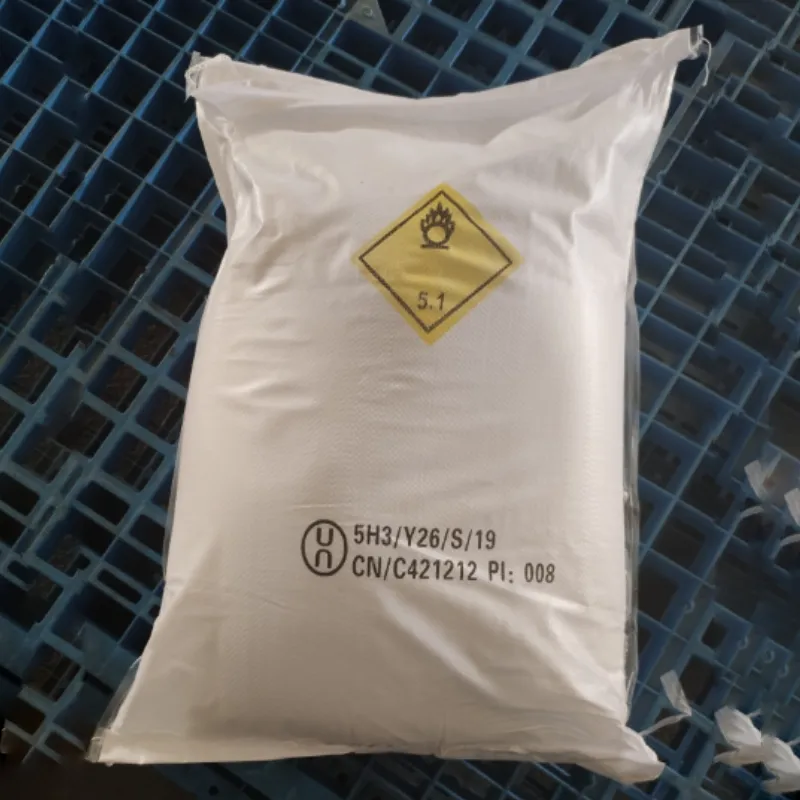
Aspartame Company - Innovating Sweet Solutions
The Aspartame Industry A Comprehensive Overview
Aspartame, an artificial sweetener, has become a significant player in the global food and beverage industry. Discovered in 1965 and approved for use in many countries during the 1980s, aspartame is now a ubiquitous ingredient in a variety of products, including soft drinks, sugar-free snacks, and pharmaceutical formulations. Its rise to prominence is rooted in its ability to provide sweetness without the calories associated with sugar, making it particularly appealing to health-conscious consumers and those looking to manage their weight.
The Science Behind Aspartame
Chemically, aspartame is composed of two amino acids aspartic acid and phenylalanine. When consumed, it breaks down into its original constituents, along with methanol, a commonly occurring substance in fruits and vegetables. This breakdown process raises questions about its safety and regulatory scrutiny. However, major health organizations, including the U.S. Food and Drug Administration (FDA), the European Food Safety Authority (EFSA), and the World Health Organization (WHO), have reviewed extensive scientific evidence and concluded that aspartame is safe for human consumption within established daily intake limits.
Market Dynamics and Demand
The global market for aspartame is driven by several factors. The increasing prevalence of obesity and diabetes has spurred demand for low-calorie and sugar-free products. In addition to health benefits, consumers are becoming more conscious of product ingredients, leading manufacturers to seek alternatives to sugar. Aspartame offers a sweeter taste profile than sugar—approximately 200 times sweeter—allowing manufacturers to use it in smaller quantities while still satisfying consumer taste preferences.
aspartame company

Challenges and Controversies
Despite its widespread acceptance, aspartame faces ongoing challenges. Safety concerns, fueled by long-standing controversies and anecdotal reports of adverse effects, can sway public opinion against its use. Some consumers report sensitivities to aspartame, leading to calls for clearer labeling and reformulation of products. Furthermore, while major regulatory bodies support its safety, the ongoing debate about artificial sweeteners and their long-term health implications means that aspartame is often under scrutiny.
The Future of Aspartame in the Market
Looking ahead, the aspartame industry is poised for potential growth. Innovations in food technology may enhance the formulation of aspartame products, improving its taste and functionality. As manufacturers continue to invest in research and development, there may be opportunities to create new blends or alternatives that can coexist with aspartame in the market.
Additionally, with the rise of plant-based diets and the demand for more natural ingredients, companies may be compelled to explore more natural sweeteners. However, aspartame's cost-effectiveness and established place in the market provide it with a competitive edge.
In conclusion, while aspartame remains a staple in the food and beverage industry, its future will rely on balancing consumer demands, regulatory pressures, and ongoing research. As society continues to grapple with health and dietary choices, the aspartame industry must navigate these complexities to maintain its position within an ever-evolving market landscape. The interplay of innovation, safety, and public perception will ultimately shape the future trajectory of aspartame and its role in our diets.
-
nitrile-rubber-honoring-strict-production-standardsNewsAug.22,2025
-
aspartame-ingredients-honoring-food-safety-valuesNewsAug.22,2025
-
fertilizer-for-balanced-plant-nutritionNewsAug.22,2025
-
cyanide-gold-processing-with-high-purity-additivesNewsAug.22,2025
-
formic-acid-in-textile-dyeing-applicationsNewsAug.22,2025
-
aluminum-hydroxide-gel-in-skincare-productsNewsAug.22,2025
-
Regulatory Compliance for Global Mining Chemicals UseNewsAug.12,2025
Hebei Tenger Chemical Technology Co., Ltd. focuses on the chemical industry and is committed to the export service of chemical raw materials.
-

view more DiethanolisopropanolamineIn the ever-growing field of chemical solutions, diethanolisopropanolamine (DEIPA) stands out as a versatile and important compound. Due to its unique chemical structure and properties, DEIPA is of interest to various industries including construction, personal care, and agriculture. -

view more TriisopropanolamineTriisopropanolamine (TIPA) alkanol amine substance, is a kind of alcohol amine compound with amino and alcohol hydroxyl, and because of its molecules contains both amino and hydroxyl. -

view more Tetramethyl Thiuram DisulfideTetramethyl thiuram disulfide, also known as TMTD, is a white to light-yellow powder with a distinct sulfur-like odor. It is soluble in organic solvents such as benzene, acetone, and ethyl acetate, making it highly versatile for use in different formulations. TMTD is known for its excellent vulcanization acceleration properties, which makes it a key ingredient in the production of rubber products. Additionally, it acts as an effective fungicide and bactericide, making it valuable in agricultural applications. Its high purity and stability ensure consistent performance, making it a preferred choice for manufacturers across various industries.





